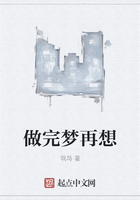Lord Pembroke introduced us all to each other, and when he came to me Castelbajac said he was delighted to see me again, although he might easily have pretended not to know me under my name of Seingalt.
We had a good English dinner, and afterwards the lady proposed a game of faro. My lord never played, so the general consented to amuse the company by holding the bank, and placed a hundred guineas and several bank notes on the table. There might be a thousand guineas in all.
He then gave twenty counters to each punter, saying that every counter was worth ten shillings. As I only staked gold against gold I would not accept them. By the third deal Schwerin had lost his twenty counters and asked for twenty more; but the banker told him he must pay for them, and the self-styled field-marshal's nephew lapsed into silence and played no more.
At the following deal Castelbajac was in the same position as his friend, and being on my side he begged to be allowed to take ten pieces.
"You will bring me ill-luck," I said, coldly, warding off his hand;
and he went out to the garden, no doubt to swallow the affront he had received. The lady said her husband had forgotten his pocketbook.
An hour afterwards the game came to an end, and I took my leave, after inviting Lord Pembroke and the rest of the company to dine with me the next day.
I got home at eleven o'clock without meeting any highwaymen as I had expected, indeed I had put up six guineas in a small purse for their special use and benefit. I woke up my cook to tell him that the next day I should have twelve people to dinner, and that I hoped he would do me honour. I found a letter from Madame Cornelis on my table telling me that she and her daughter would drive with me on the following Sunday, and that we could go and see the boarding-school she had selected.
Next day Lord Pembroke and the fair Frenchwoman were the first to arrive. They drove in a carriage with two rather uncomfortable seats, but this discomfort is favourable to love. The Gascon and the Prussian were the last to come.
We sat down to table at two and left it at four, ail of us well pleased with the cook, and still more so with the wine merchant; for though we had emptied forty bottles of wine, not one of us was at all intoxicated.
After coffee had been served the general invited us all to sup with him, and Madame Castelbajac begged me to hold a bank. I did not wait to be pressed but placed a thousand guineas on the table, and as I
had no counters of any kind I warned the company that I would only play gold against gold, and that I should stop playing whenever I
thought fit.
Before the game began the two counts paid their losses of the day before to the general in bank notes, which he begged me to change. I
also changed two other notes presented to me by the same gentleman, and put them all under my snuff-box. Play began. I had no croupier, so I was obliged to deal slowly and keep an eye on the two counts, whose method of play was very questionable. At last both of them were dried up, and Castelbajac gave me a bill of exchange for two hundred guineas, begging me to discount it for him.
"I know nothing about business," I replied.
An Englishman took the bill, and after a careful examination said he neither knew the drawer, the accepter, nor the backer.
"I am the backer," said Castelbajac, "and that ought to be enough, I
think."
Everybody laughed, besides myself, and I gave it him back courteously, saying politely that he could get it discounted on 'Change the next day. He got up in a bad temper, and left the room, murmuring some insolent expressions. Schwering followed him.
After these two worthy gentlemen had left us, I went on dealing till the night was far advanced, and then left off, though I was at a loss. However, the general had a run of luck, and I thought it best to stop. Before leaving he took me and Lord Pembroke aside, and begged me to contrive that the two knaves should not come to his house the followifig day. "For," said he, "if that Gascon were to be half as insolent to me as he was to you, I should shew him out by the window."
Pembroke said he would tell the lady of the general's wishes.
"Do you think," said I, "that those four notes of theirs can be forgeries?"
"It's very possible."
"What would you advise my doing to clear the matter up?"
"I would send them to the bank."
"And if they should be forgeries?"
"I would have patience, or I would arrest the rascals."
The next day I went to the bank myself, and the person to whom I gave the notes gave me them back, saying, coldly,--
"These notes are bad, sir."
"Be kind enough to examine them closely."
"It's no good, they are evident forgeries. Return them to the person from whom you got them, and he will be only too glad to cash them."
I was perfectly aware that I could put the two knaves under lock and key, but I did not want to do so. I went to Lord Pembroke to find out their address, but he was still in bed, and one of his servants took me to them. They were surprised to see me. I told them coolly enough that the four notes were forged, and that I should feel much obliged if they would give me forty guineas and take their notes back.
"I haven't got any money," said Castelbajac, "and what you say astonishes me very much. I can only return them to the persons who gave them to me, if the are really the same notes that we gave you yesterday."
At this suggestion the blood rushed to my face, and with a withering glance and an indignant apostrophe I left them. Lord Pembroke's servant took me to a magistrate who, having heard my statement on oath, gave me a paper authorizing me to arrest two counts. I gave the document to an alderman, who said he would see it was carried out, and I went home ill pleased with the whole business.
Martinelli was waiting for me; he had come to ask me to give him a dinner. I told him my story, without adding that the knaves were to be arrested, and his advice delivered with philosophic calm was to make an autoda-fe of the four notes. It was very good advice, but I
did not take it.















